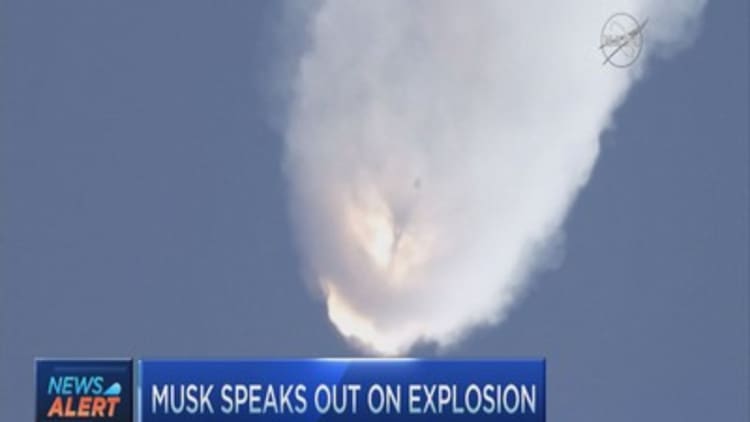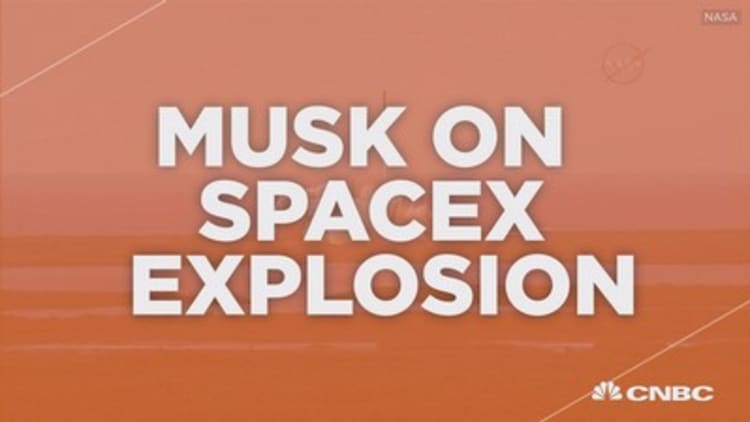


Last month's SpaceX rocket failure was caused by a structural failure and could have been saved if its parachute had been deployed, CEO Elon Musk said on Monday.
Musk, the founder of SpaceX, discussed the preliminary results of an investigation into the June 28 rocket launch failure in a teleconference Monday. The investigation is still ongoing.
"I think this is certainly an important lesson and something we are going to take with us into the future," he said.
About three weeks ago, the unmanned rocket exploded about two minutes after liftoff from Cape Canaveral Air Force Station in Florida. The CRS-7 was carrying cargo bound for the International Space Station.
Read MoreSpaceX ship headed to Intl. Space Station explodes after liftoff
The company identified a two-foot steel strut that was holding down the helium pressure vessels that snapped due to acceleration force. There was a mere 0.89 seconds between when a problem was noticed and when the explosion happened.
The part that failed was from a supplier, although Musk would not name the company. He did say that company would likely switch suppliers.
Musk also said that the software program, which was an older version, did not release the command to open its parachute during the incident.
"That's an unfortunate thing because we could have saved Dragon [supply ship] if we had the right software there," he said.
Musk said that going forward each strut will be individually tested to ensure its reliability and the software program will also be update to deploy parachutes more quickly to try to save the spacecrafts. The changes will push out flights only by a few months, he added.
Following the explosion in June, Musk sent out the following tweet:
The rocket was the company's 19th Falcon 9 launch since its 2010 debut, including six previous cargo runs for NASA under a 15-flight contract worth more than $2 billion.
The cause of the accident was not immediately known. Monday's call with journalists was the first public announcement of the preliminary results from the company's own investigation.
Musk is also the founder of electric car maker Tesla and chairman of the solar firm SolarCity.
—Reuters contributed to this report.






